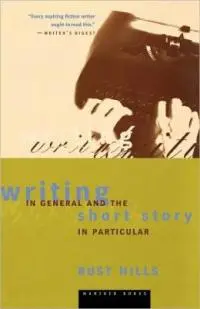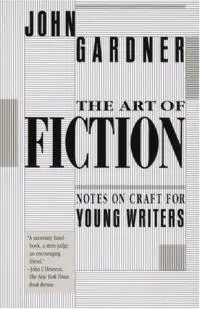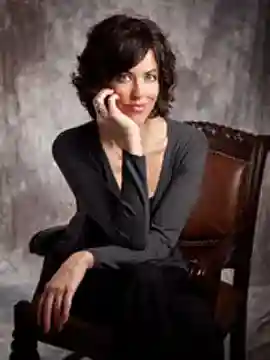About a decade ago, the shelves at your local Borders (RIP) housed a reasonable selection of books about writing for those hungry to learn and improve their craft. Today, despite the doomsday reports that print books will soon be obsolete, those shelves—let's move to Barnes and Noble—practically groan under the weight of all those who have their own take on crafting prose and an inspired creative life in general. For those who supplement their writing education foundation online, well, they're met with a dizzying array of advice, inspiration, dos and do nots, and on and on—some resources excellent and others not so much. Clearly, we're in the middle of a writing resources boom. It's become a big business and those willing to add their voice to the cacophony of advice may or may not profit.
So, where does that leave writers? What print resources stand the test of time? What books are worth sacrificing lunch money and deserve to have their pages highlighted, dog-eared and stained with coffee (or chocolate or Dorito fingers, choose your vice)? And do we need to broaden our search past all the writing "how-to" to access a more intense depth of understanding?
I've asked several writers, agents who write, and a multi-disciplined publisher:
Which books on writing stand the test of time?
Monica Drake, author of The Stud Book (Hogarth, 2013)
 On Writing In General and The Short Story in Particular, by Rust Hills, was incredibly helpful in terms of understanding what the common foundation of short stories was meant to be. He describes it as essentially the "Always versus the Once." It is what happens always—a man goes to work, perhaps, or a person takes the bus—and what happens once, that kicks off the parameters of the story at hand—One day, on the bus. . . . After reading that, whenever a story wasn't quite coming together, I could go back to the very simple question of what constitutes the "always" and what was the "once," and how do the two speak to each other. It sounds so simple, but I know it's helped a lot of story writers. I know that personally, because I've shown it to so many writing students and I've seen the light go on.
On Writing In General and The Short Story in Particular, by Rust Hills, was incredibly helpful in terms of understanding what the common foundation of short stories was meant to be. He describes it as essentially the "Always versus the Once." It is what happens always—a man goes to work, perhaps, or a person takes the bus—and what happens once, that kicks off the parameters of the story at hand—One day, on the bus. . . . After reading that, whenever a story wasn't quite coming together, I could go back to the very simple question of what constitutes the "always" and what was the "once," and how do the two speak to each other. It sounds so simple, but I know it's helped a lot of story writers. I know that personally, because I've shown it to so many writing students and I've seen the light go on.
Now though, after writing for decades, when I'm looking for inspiration I like to see what other arts, other disciplines are doing. I look at Lynda Barry's books on craft, because they're fun and smart at the same time. I look at books like Understanding Comics: The Invisible Art, by Scott McCloud, for thoughts outside of conventional literary sources on the question of sequential narrative. And I've always been a fan of Drawing on the Right Side of the Brain, by Betty Edwards, just as a way to shake things up, look at the world with refreshed perception.
Bree Ogden, literary agent and LitReactor columnist
Writing and Illustrating the Graphic Novel: Everything You Need to Know to Create Great Work and Get It Published by Daniel Cooney (Barron's Educational Series)
For graphic novel and comic book writers I, of course, recommend anything by Scott McCloud. Cooney's book, though, is a practical how-to guide to writing, illustrating, and publishing a graphic novel. It's very easy to comprehend and gives phenomenal tips and tricks for this particular rule-filled craft.
Phil Jourdan, publisher, editor, and author of What Precision, Such Restraint (Perfect Edge, 2013)
The Art of Fiction by John Gardner is the book that's most influenced my thinking on writing.
First, because it's elitist—he was an opinionated, combative, talented guy who believed in the power of writing to do more than just entertain. That's an increasingly unpopular notion. The market for books on writing is a space filled with desperation and condescension: "It's EASY to Write a Book!" or "Sell Your Novel Now!" The very idea of being serious about your writing is unpleasant, because sometimes that calls for very serious reading as well, which in turn scares everyone off (or so you'll be told). Gardner wanted writers to be serious anyway, and to work hard at what they were doing.
Second, because it's well-written. I like Gardner's prose itself, and I admire his style in many ways. Sometimes he missed the mark, but in The Art of Fiction he wrote well about writing well.
Suzy Vitello, LitReactor instructor and author of Raising Cheer (forthcoming from Diversion Books, January 2014)
My all time favorite is Anne Lamott's Bird By Bird. I like the context, delivered in voice and full of humor.
As far as nuts and bolts, I refer again and again to John Gardner's book, The Art of Fiction. The exercises are particularly helpful from a mechanical perspective. Just can't get enough of Freytag's Pyramid for arc development.
I love Madison Smartt Bell's Narrative Design. It's a more philosophical and psychological look at story development. I love the deconstructive minutiae in that book!
John Cusick, literary agent and author of Cherry Money Baby (Candlewick, 2013)
In college I read Stephen King's On Writing, and this book more than any other influenced me as a young writer. It's such a perfect blend of practical and, let's say, holistic advice. It inspired me to see writing as a lifestyle and a vocation, and perhaps most importantly, set me on the path to writing every day (or close to it).
As for my list:
 Oakely Hall's The Art and Craft of Novel Writing offers beginning writers valuable perspective and insight into the process of novel writing.
Oakely Hall's The Art and Craft of Novel Writing offers beginning writers valuable perspective and insight into the process of novel writing.
The Art of Fiction, by John Gardner, because every writer needs to understand and appreciate the hard-core traditional foundations of good writing before they set out to do anything else with their work. (See Phil and Suzy's response above).
Writing in Community: Say Goodbye to Writer's Block and Transform Your Life, by Lucy Adkins and Becky Breed (full discloser, I work for the publisher who published this book). This book is part 'how-to' in the best sense of the concept, part portable writer's workshop, and part celebration of the writer's life and their role in the greater writing community. The authors are delightfully sincere and nurturing in their approach as they offer beginning and seasoned writers a way to strengthen their practice.
The Lone Ranger and Tonto Fistfight in Heaven and Ten Little Indians, by Sherman Alexie. The best books about writing aren't books about writing at all—they're books that blow your mind with their perfection and move you to the page. These two are the best of the best of Alexie's short fiction collections. His prose is precise, honest, hilarious, poignant, and profound—often accomplished in a single sentence. If you read just one book suggested in this article, read Alexie (though, of course, I hope you read the others, especially Gardner).
What do you think? Have any of these books added to your craft? Do you have a book you'd like to suggest? Share below. And, for further reading, you can also check out books on editing for more insights into writing and publishing.

About the author
ERIN REEL is a Los Angeles based publishing and editorial consultant, writing coach, columnist, blog host of The Lit Coach's Guide to The Writer's Life and outspoken advocate for writers. A former literary agent with nearly 10 years in the industry, Erin has worked with a wide array of writers worldwide. She has contributed to Making The Perfect Pitch: How to Catch a Literary Agent's Eye (Sands, Watson-Guptil, 2004); and Author 101: Bestselling Secrets from Top Agents (Frishman & Spizman, Adams Media, 2005).








